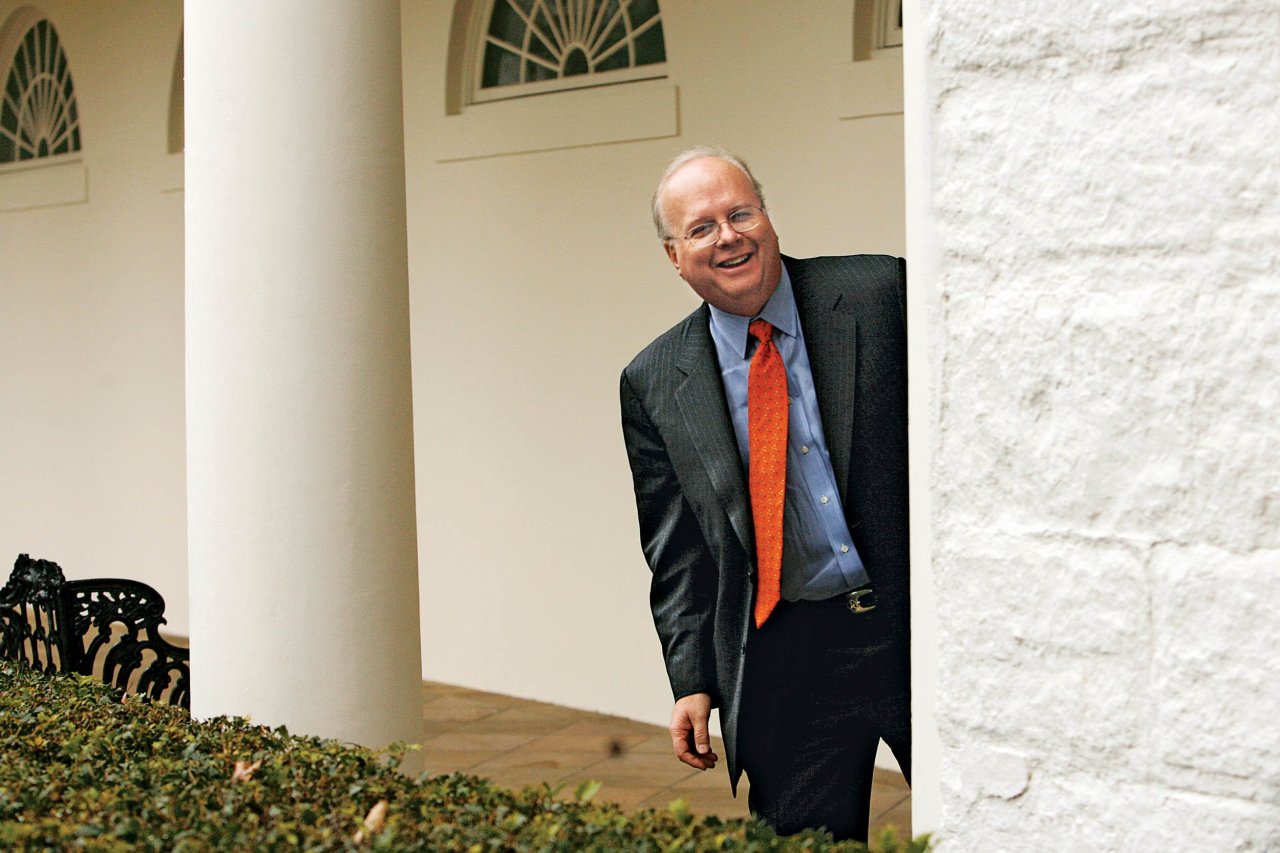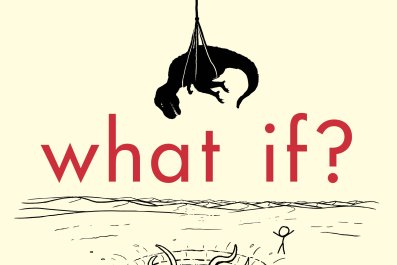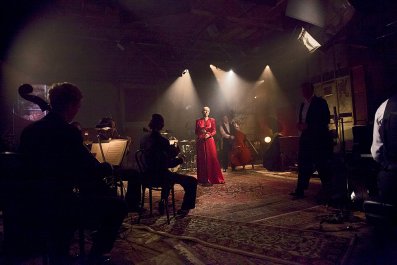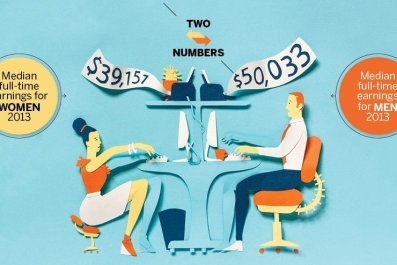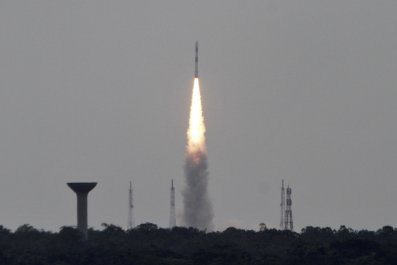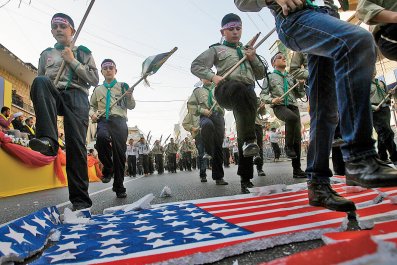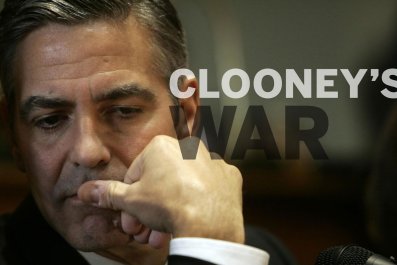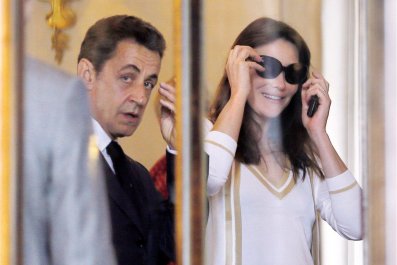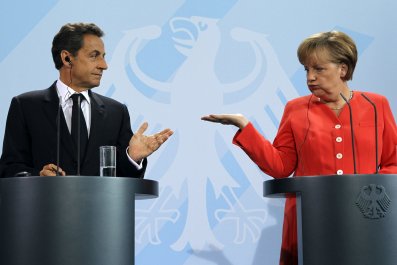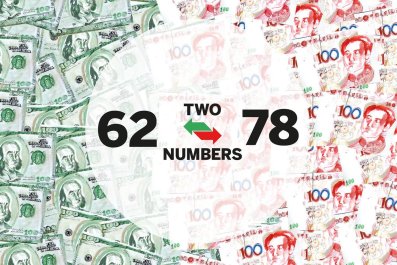With apologies to the cast of Cabaret, dark money makes the political world go round.
Confusing rules and a regulatory void in campaign finance have unleashed a tsunami of cash from anonymous donors that is expected to have unprecedented influence over the midterm elections in November.
As a result of the U.S. Supreme Court's Citizens United v. Federal Election Commission judgment in 2010, individuals—and big corporations—received a carte blanche to make unlimited anonymous financial donations to "nondisclosing" organizations, increasingly nonprofit groups whose primary mission is defined as "social welfare."
There are some guidelines: Such groups, categorized as 501(c)(4), can devote no more than half of their funds to political spending if they want to retain their nondisclosing tax-exempt status. The trouble is, who is holding them to account? Since the Internal Revenue Service got hammered for oversight activities that were at best overzealous, at worst partisan, many of these groups can essentially do whatever they want, unchallenged.
While the partisan battle rages over whether such anonymous and unlimited political spending should even be allowed, a more immediate concern is the unwillingness, or inability, of regulators to get involved and enforce the existing rules—for dark money and for campaign spending in general.
On November 4, candidates will do battle over all 435 seats in the House of Representatives, plus 36 of the Senate's 100 seats. Dark money as a proportion of total money spent on U.S. election campaigns is reaching an all-time high, according to data obtained by Newsweek from the Sunlight Foundation, a Washington-based nonpartisan group that is an advocate for transparent government.
Up about 50 percent from the last election season, in 2012, cash spent by dark money groups hit $85.4 million as of late September, making 2014 a record year at this point in the cycle for unknown donors. Considering that the bulk of the funds are not spent until the final weeks before Election Day, the Center for Responsive Politics estimates that dark money expenditures could reach "upwards of $730 million, or, if the rate seen in the last midterm holds, edge close to $1 billion."
While dark money equates to just under 10 percent of total political expenditures by House and Senate candidate committees so far this season—which, as of mid-September, hovered at just above $850 million—funds coming from hidden donors for radio, television and other ads ahead of the midterm elections could play a decisive role in races this year, with Republicans poised to take back the Senate. (For every $1 of dark money spent on a House race, $3 has been spent on a Senate race.)
Sunlight's data guru, Jacob Fenton, told Newsweek that spending by congressional candidates this year has been "flat" compared with 2012, while spending by dark money groups on House and Senate races has "nearly doubled."
This year, the greatest amount of dark money, more than $50 million, has been spent on boosting Republicans and defeating Democrats. Outside of the realm of dark money, it's the reverse: The majority of funds—more than $100 million—have been spent on defeating Republicans, with pro-Democrat TV ads dominating top Senate races in the first two weeks of September.
"The sheer numbers on display have caused this year to be christened the dark money election," says Lisa Gilbert, a director at Public Citizen, a nonprofit think tank in Washington that lobbies for government transparency and financial reform. "Our goal is to get new rules in place before 2016, so that by the time we get to the next presidential election, we have a lot more transparency and disclosure in the system."
Groups on both sides are using dark money. On the liberal end are such groups as Patriot Majority USA and League of Conservation Voters, while conservative causes are supported by the likes of Americans for Prosperity and Crossroads GPS.
Americans for Prosperity, run by the billionaire industrialist Koch brothers, and Crossroads GPS, founded by Karl Rove, have become flashpoints in the debate, as some detractors accuse nondisclosing groups of filing for nonprofit status solely to invoke the right to hide their donors. By contrast, Super PACs, which also take unlimited donations, thanks to the Citizens United decision, must report their donors' identities.
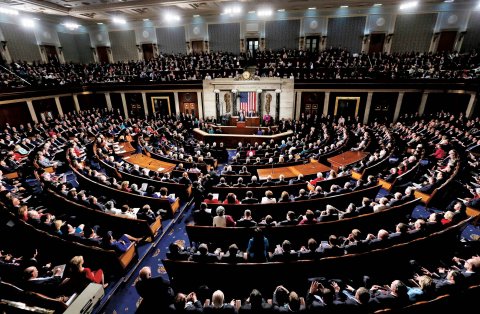
HANDS OFF
A key point often overlooked in Citizens United was that even as the Supreme Court upheld the rights of all—even corporations—to engage in "political speech" in the interest of safeguarding an "uninhibited marketplace of ideas," the court made it clear that the honest and timely disclosure of the identity of speakers was critical for "the electorate to make informed decisions and give proper weight to different speakers and messages."
But when it comes to policing campaign-spending rules, government agencies have stepped up and just as quickly struck out.
Ensuring full disclosure where it is required has traditionally been the job of the Federal Elections Commission (FEC), which can impose penalties and fines in cases of failures. But the commission is plagued by gridlock.
"By law, it has to be three commissioners for each party, and you need four votes to get anything done. The laws are frequently confusing, and the debates are real," says Bradley Smith, chairman of the Center for Competitive Politics, a nonprofit organization working for First Amendment rights, who was an FEC commissioner for five years and its chairman in 2004.
According to the Center for Public Integrity, a nonpartisan Washington research organization, the FEC's commissioners are voting on fewer enforcement matters. More than 1,000 a year was routine in the middle of the last decade, compared with fewer than 200 annually earlier this decade, "the result of an overtaxed staff and commissioner disagreement," the center says.
When the FEC commissioners do agree, they are often ignored. Since 2011, the FEC has requested that members of the Senate file their fund-raising and spending records electronically, because it costs the U.S. taxpayer "at least $430,000 per year" for the FEC to convert the Senate's paper records into electronic files that can be "processed and disseminated more easily, resulting in better use of resources." The Senate has considered it, but has decided not to go paperless, although the rest of Congress has been doing it for more than a decade. (An FEC spokeswoman told Newsweek that senators actually have the ability to e-file, but, by law, the Senate cannot accept anything not in hard copy as the official record.)
This would seem incompatible with what the Supreme Court intended, as stated in Citizens United itself. "With the advent of the Internet, prompt disclosure of expenditures can provide shareholders and citizens with the information needed to hold corporations and elected officials accountable for their positions and supporters," it says, adding that "citizens can see whether elected officials are 'in the pocket of' so-called moneyed interests."
In the wake of Citizens United, it fell on the IRS to step up oversight of nondisclosing groups, which frequently file under the 501(c)(4) section of the tax code, a maneuver that allows them to conceal donors and act as tax-exempt, nonprofit social welfare organizations. These groups have always existed (think the Sierra Club or Planned Parenthood), but, as of 2010, they could suddenly take unlimited donations—and, increasingly, new ones were setting up shop and doing it for political purposes.
The IRS found itself ill-prepared for the groundswell of groups doing this. In particular, it struggled to identify which organizations appeared to be spending more than the recommended 50 percent of their annual budgets on political activities—and even to define what "political spending" was.
What happened next is well known: The IRS began looking more closely at nonprofits and was accused in 2013 of targeting conservative and Tea Party groups, including Rove's Crossroads GPS, as well as politicizing the granting of its coveted 501(c)(4) status to them. The agency apologized, and former IRS official Lois Lerner lost her job.
With the FEC and IRS duly sidelined, some voters are turning to another, not so obvious, regulator: the U.S. stock market watchdog, the Securities and Exchange Commission. A petition to the SEC lodged in August 2011 by nine academics from top universities across the country asked the agency to "develop rules to require public companies to disclose to shareholders the use of corporate resources for political activities."
The petition received more than a million comments in September, a record amount for the SEC, with the overwhelming majority of voters asking for better disclosure. Referring to a scandal last year in which a political donation from retail giant Target was linked to an anti-gay gubernatorial candidate in Virginia, one commenter, Angus Parker, wrote: "Target lost 3 percent of its value in one day after its contributions came to light. However, there is no requirement that corporations make such disclosures. I think this should be remedied."
The SEC is a reluctant white knight. "We appreciate that there are strong views on both sides of the issue, as evidenced by the many comments received on the rulemaking petition," SEC spokesman John Nester told Newsweek. "But we are focused on rulemakings in other areas."
The petition has found grassroots groups and investors on Wall Street largely in agreement for once. In addition, nearly a dozen senators and more than 40 members of the House have supported it, according to one of the petition's drafters, Lucian Bebchuk, a professor of law, economics and finance at Harvard.
Bebchuk scoffs at those who say new rules to disclose corporate political spending will hurt confidentiality. "One could understand such an argument for letting individuals anonymously contribute their money," he told Newsweek. "But such an argument loses its force when public companies make political contributions. In such a case, executives contribute not their own money but shareholders' money, and there is little basis for allowing them to keep the contribution hidden from the shareholders whose money is spent."
'90 PERCENT VAGUE'
One major question, especially when it comes to policing dark money, is what exactly qualifies as "political spending."
The IRS is now drafting new rules to address that, but the road to a straightforward set of guidelines will likely be a bumpy one, predicts Marcus Owens, a partner at Washington law firm Caplin & Drysdale and a former IRS director specializing in the oversight of tax-exempt organizations like the ones now in the political spotlight.
"Political activity has become a lot subtler and sophisticated and no longer needs to rely on overt political messages, so it is no longer as easy to differentiate between political groups and nonpolitical groups," he says. For instance, many nonprofits argue that their work is "educational" rather than "political."
One group hoping to help draw the line is the Bright Lines Project, a venture chaired by Gregory Colvin, a partner at law firm Adler & Colvin in San Francisco. It has brought together nine tax law experts to draft a set of proposed rules for the IRS in conjunction with Public Citizen. The group, which is in touch with the IRS, noted in its interim draft that the systemic breakdown at the IRS stemmed from a "lack of clear, neutral, objective standards by which IRS employees and managers could determine whether applicants were engaged in political intervention." The IRS confirmed to Newsweek it is in touch with Bright Lines, but declined to say when it expects to propose its new rules.
Colvin told Newsweek, "The goal is for people to be able to engage in free speech without getting into trouble with the IRS. The rules may never be perfect, but, right now, they are 90 percent vague. We think we can get them to a place where they're 75 percent predictable."
A Treasury spokeswoman says the IRS has received "a substantial number of comments," including from Bright Lines, on the new rules. She added, "It is likely that the IRS and Treasury will make some changes to the proposed regulation governing political activity" in 501(c)(4) organizations.
Any rules are unlikely to be welcomed by the Center for Competitive Politics's Smith, who opposes restrictions on free speech, anonymous or otherwise. "Our view is that many people will be driven out of politics if they are forced to disclose their names and their personal information. The purpose of disclosure is to help people monitor the government, not for the government to monitor the people," he says.
Arguments over free speech and money in politics go back to the origins of the country, says Sean Noble, who played a central role in setting up the Koch brothers' empire of nondisclosing groups and now runs Washington-based American Encore, a similar nonprofit organization that vigorously backs free speech—including anonymous speech.
"What people don't realize is that true free speech includes the right to speak anonymously," he says. "This type of speech goes back to the dawn of our country, when the Founding Fathers feared a government that would try to thwart its critics. We have a right to criticize what we don't like, and citizens should have the expectation that they can speak out politically and not be targeted."
This article has been updated to reflect the most recent data on campaign finances.



